International Day of Women and Girls in Science 2021
On International Day of Women and Girls in Science (February 11), we’re highlighting some of our PhD supervisors and their research students who are conducting fascinating research and inspiring the next generation of Women in Science.
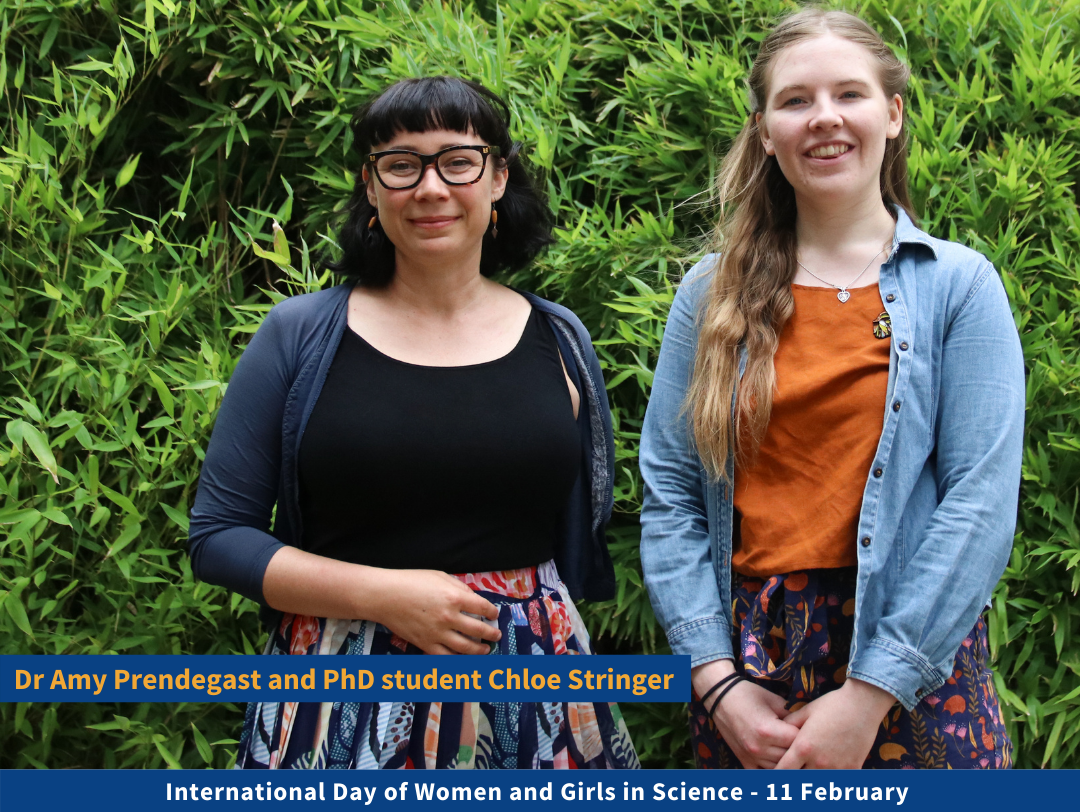
Dr Amy Prendergast (Geography) and PhD student Chloe Stringer
“We’re exploring how First Nations People of the Milewa Mallee in Ngintait Country were influenced by and adapted to environmental change over the past 60,000 years. To do this, we’re analysing freshwater mollusc shell growth patterns and chemistry – known as ‘Schlerochronology’.”
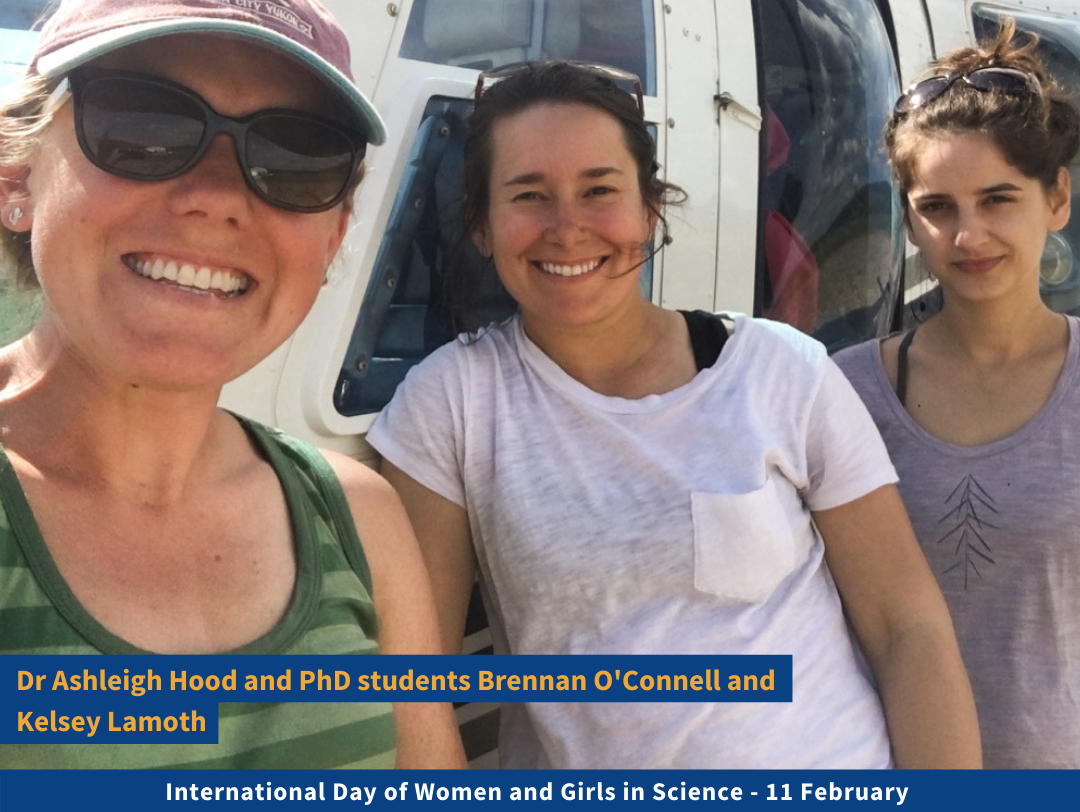
Dr Ashleigh Hood (Earth Sciences) and PhD students Brennan O’Connell and Kelsey Lamoth
“Our research’s aim is to refine our understanding of the effects of environmental change on marine ecosystems. We’re working on ancient reefs, tidal systems and unusual deep-water habitats in low oxygen oceans.”
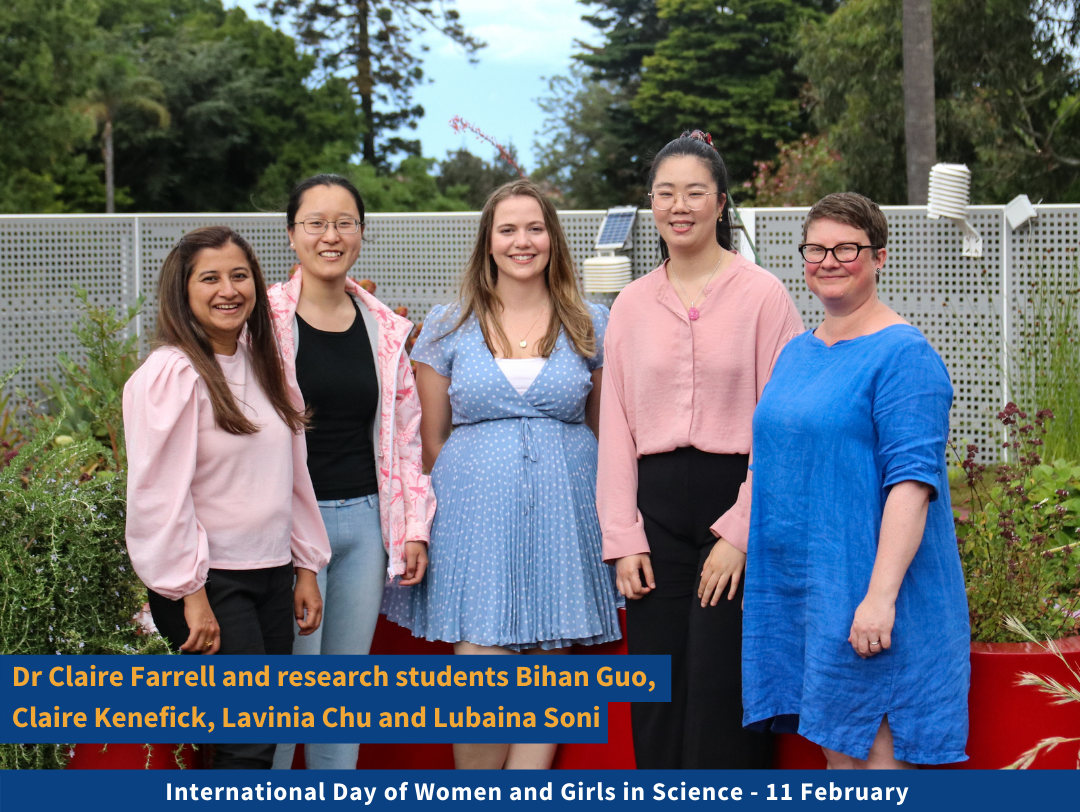
Dr Claire Farrell (Ecosystem & Forest Sciences) and research students Bihan Guo, Claire Kenefick, Lavinia Chu and Lubaina Soni
“We look at how green infrastructure technologies, such as green roofs and woody meadows, can contribute to improving biodiversity, cooling cities and reducing stormwater runoff into rivers and streams.”
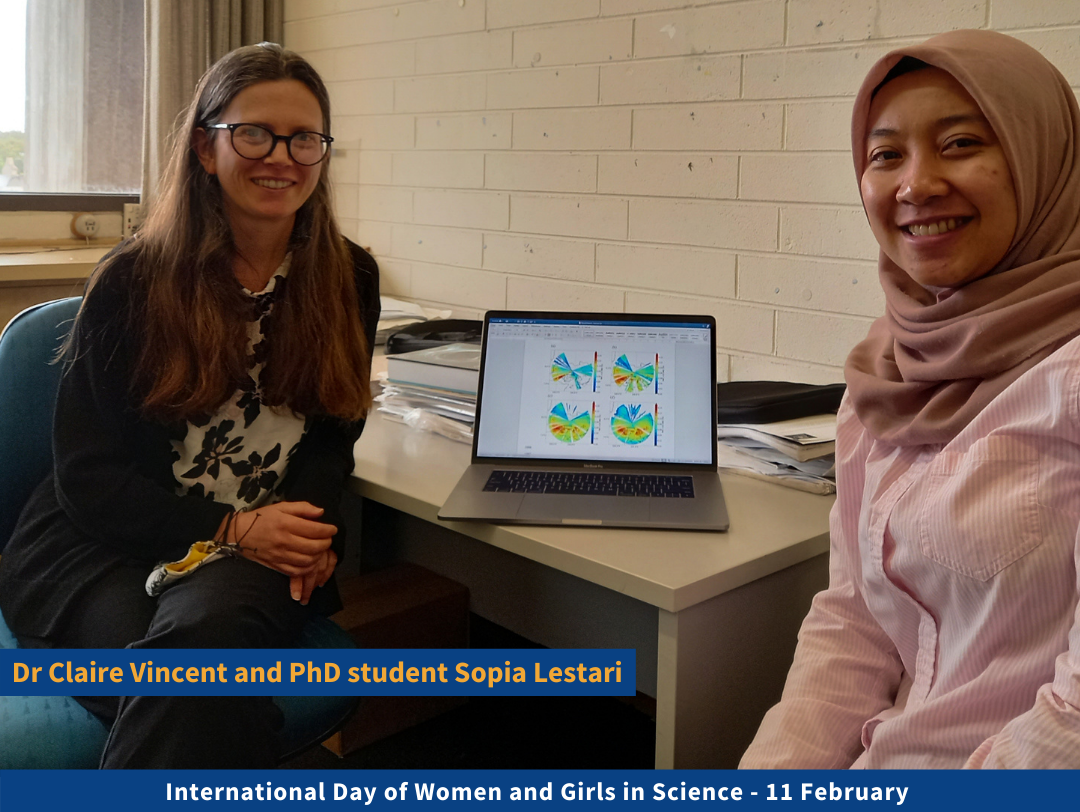
Dr Claire Vincent (Earth Sciences) and PhD student Sopia Lestari
“We’re conducting a detailed study of the spatial and temporal variation in rainfall in and around Jakarta, Indonesia. Our work with rain-radar datasets helps us to understand the interaction between topography and the instar-seasonal variability of extreme rainfall in the region.”
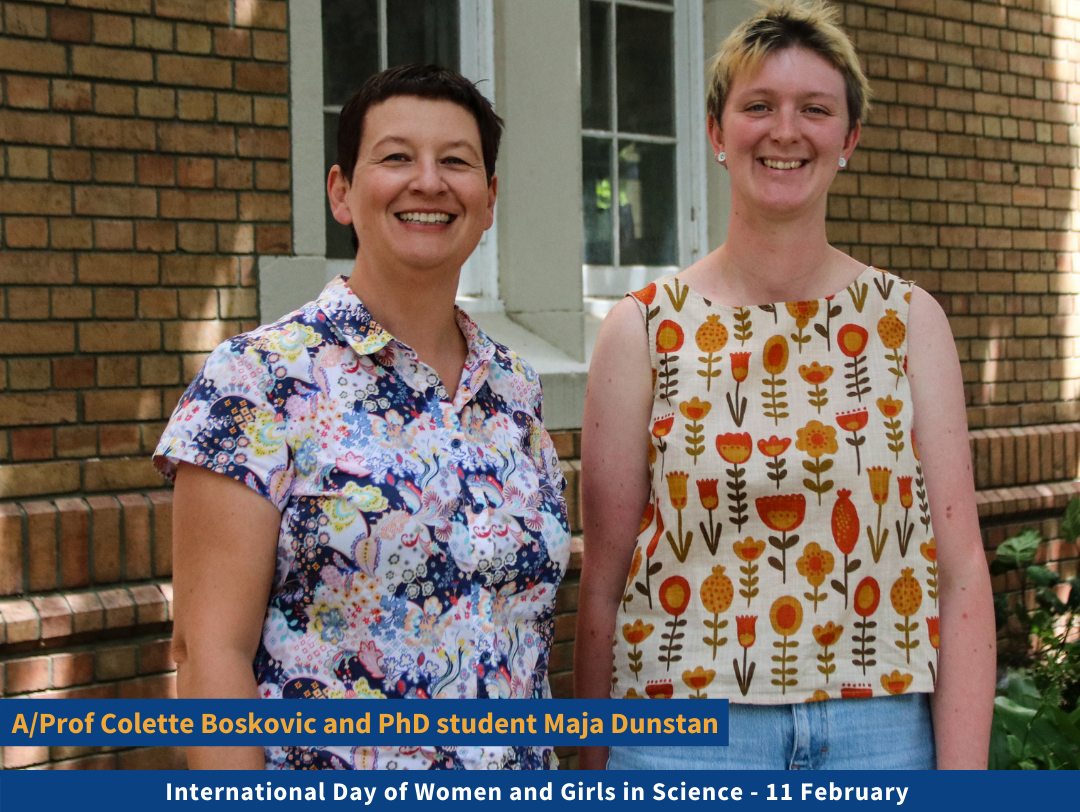
A/Prof Colette Boskovic (Chemistry) and PhD student Maja Dunstan
“We’re using inelastic neutron scattering to understand the magnetic properties of some rare earth molecular materials. These materials could form the basis of new classes of energy efficient nanoscale molecular devises.”
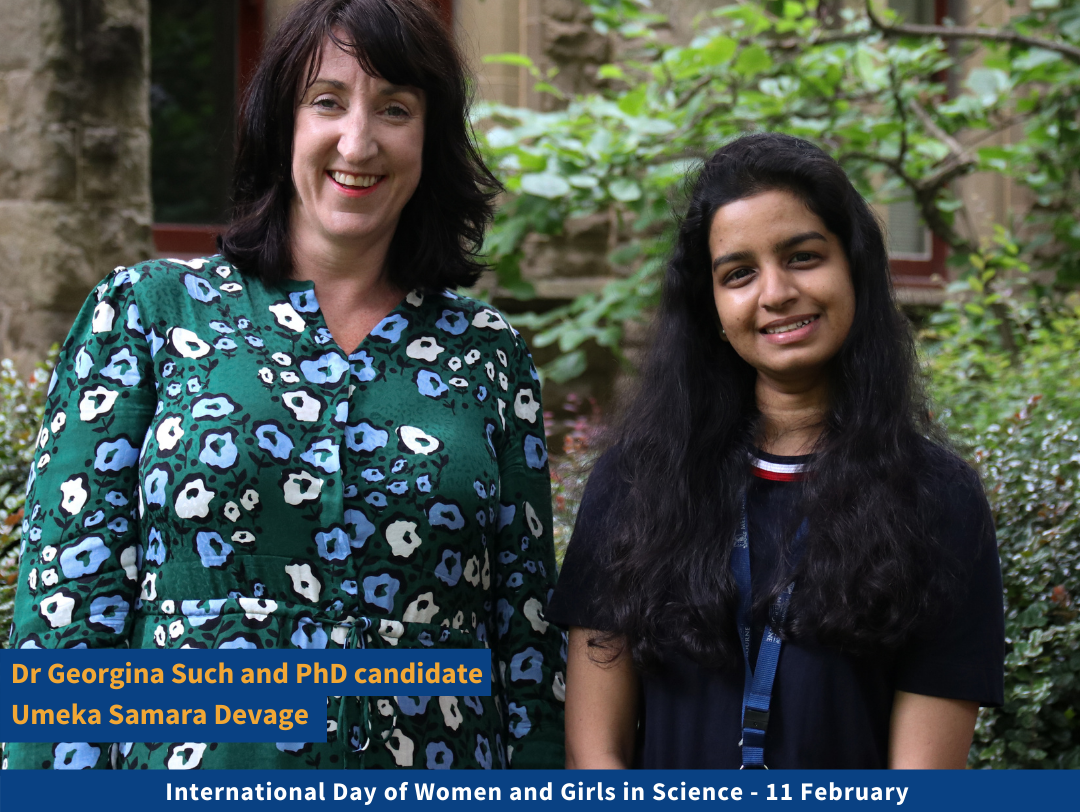
Dr Georgina Such (Chemistry) and PhD candidate Umeka Samara Devage
“Many chronic bacterial infections are caused by biofilms and are difficult to treat. We are working on developing novel antibacterial nanoparticles based on star-shaped polymers which deliver active cargo more effectively to target bacteria.”
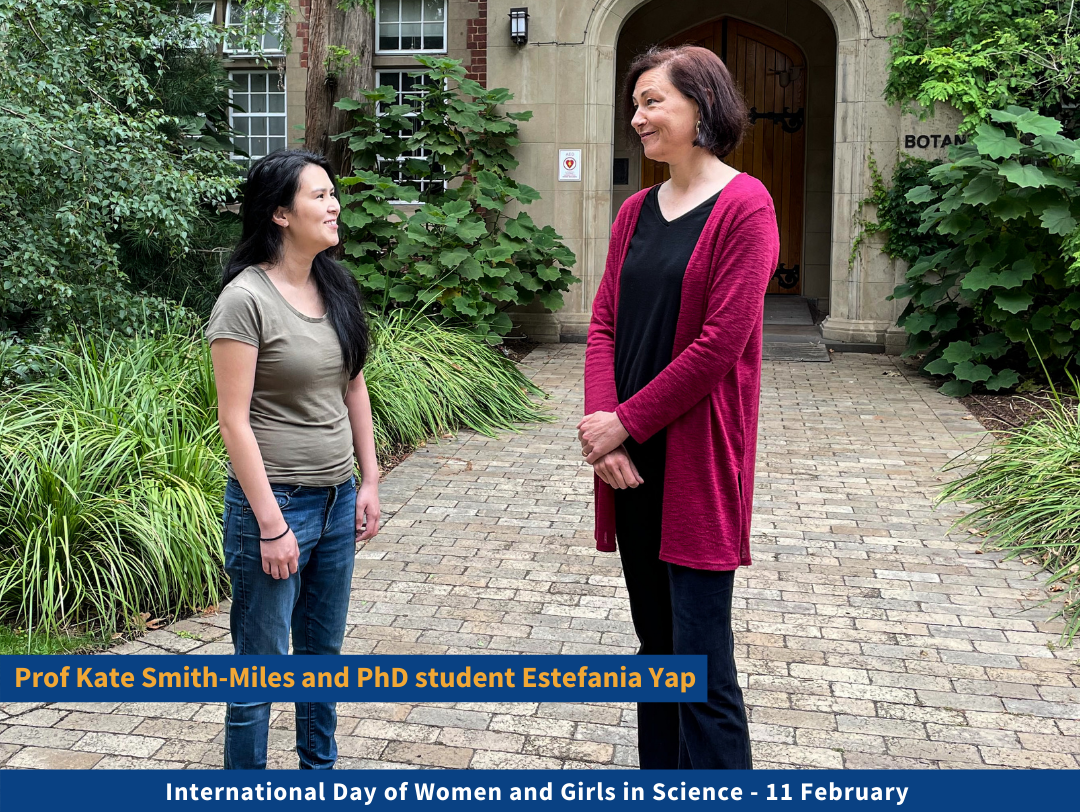
Prof Kate Smith-Miles (Mathematics & Statistics) and PhD student Estefania Yap
“Our research looks at multi-objective optimisation problems which tries to find solutions to conflicting goals, e.g. maximising profit while minimising carbon emissions. We’re trying to understand what makes such problems difficult to solve for state of the art algorithms.”
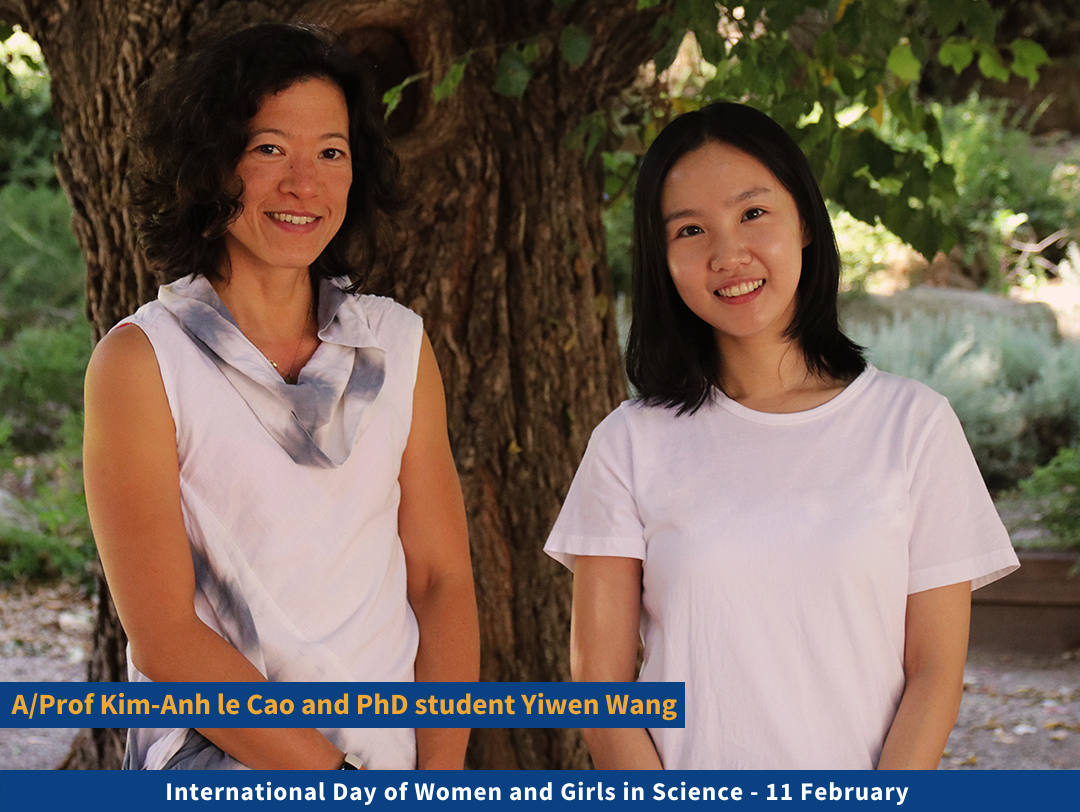
A/Prof Kim-Anh le Cao (Mathematics & Statistics) and PhD student Yiwen Wang
“Thousands of microorganisms inhabit our body. We are designing new computational methods so that microbiome data can be analysed efficiently to give better insight into the microbes that we all host.”
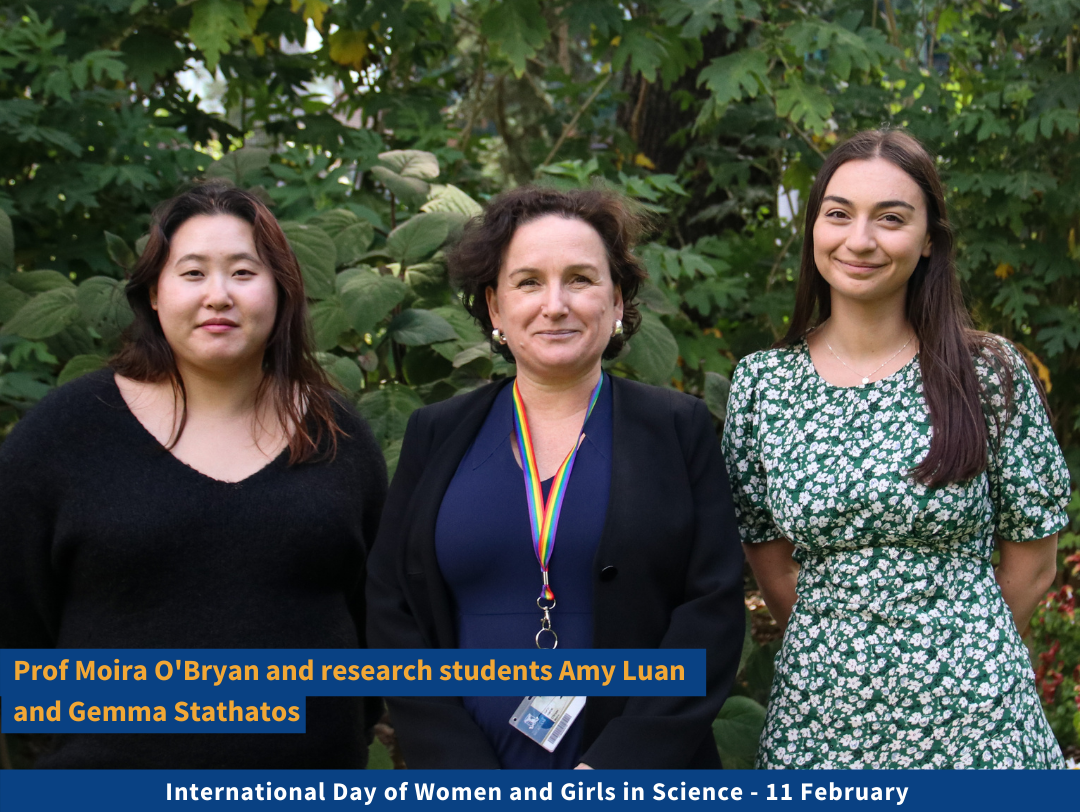
Prof Moira O’Bryan (BioSciences) and research students Amy Luan and Gemma Stathatos
“We’re aiming to uncover the genetic causes of male infertility, how sperm are produced and the relationship between sperms structure and function.”
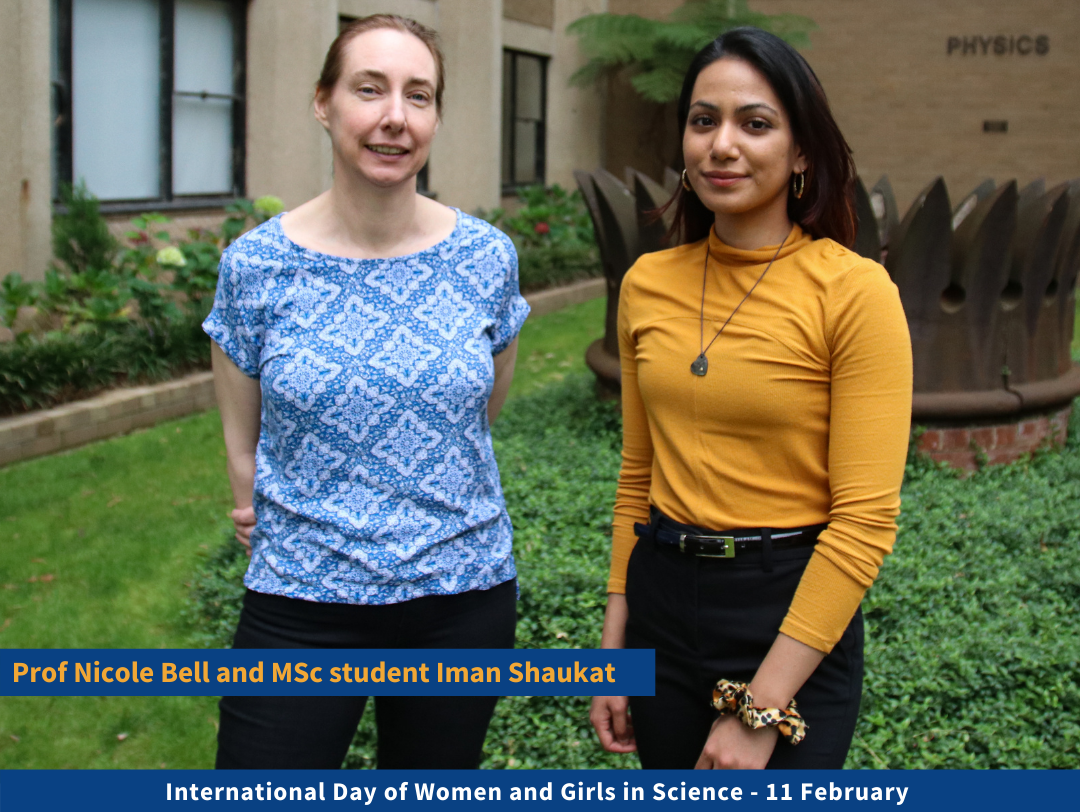
Prof Nicole Bell (Physics) and MSc student Iman Shukat
“Our research explored the way in which dark matter particles interact with ordinary matter. By uncovering the identity of the cosmological dark matter, we aim to improve our understanding of the universe in which we live.”